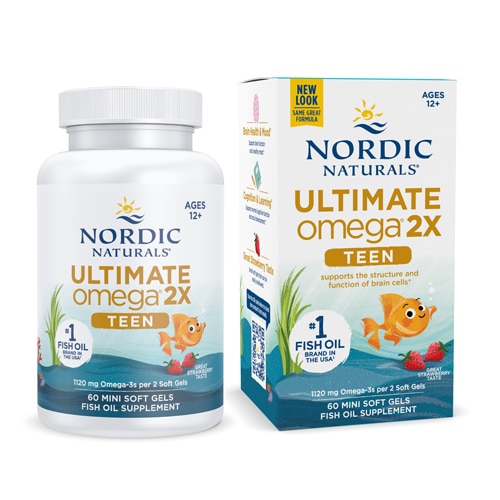Social media platforms like Facebook, Twitter, YouTube and Instagram can do plenty of good for society.
They can connect us with long-lost friends. They can alert us to what’s happening in our communities. They can give us a place to share, to celebrate, to vent, to grieve and to learn. They can even be tools for curbing gang violence and combating opioid addiction.
However, social media also can do harm, particularly among children and young adults, studies show. And it’s a struggle to counteract that harm, as 40 percent of U.S. adults who use social media say it’d be hard to kick their Facebook and Instagram habits, according to the Pew Research Center.
Here are just five ways that social media might do damage.
1. Weakened self-control
A study published in 2013 in the Journal of Consumer Research found that the boost in self-esteem that can be produced by social media interaction can trigger a lack of self-control for social media users — specifically those seeking to impress their close friends on Facebook. Among those users, greater Facebook usage was tied to unhealthy snacking, increased binge eating, a higher body mass index (BMI), lower credit scores and higher amounts of credit card debt.
2. Promotion of eating disorders
Research published in 2017 in the Journal of Eating Disorders shed light on a disturbing trend — sharing of images on social media that depict skeletal bodies, such as protruding collar bones and hip bones.
The study, conducted by researchers at England’s University of Exeter, described how some Instagram and Twitter users were glorifying extreme skinniness by publishing “bonespiration” content featuring selfies of young women showing off their emaciated frames.
3. Reduced well-being among girls
Researchers at the University of Essex and UCL university, both in England, detected a link between time spent on social media at age 10 and decreased well-being from age 10 to 15 — but only among girls, not boys.
The research, published in 2018 in the journal BMC Public Health, relied on self-reported survey data from nearly 10,000 adolescents in the United Kingdom. It focused on well-being factors such as behavioral problems and happiness and their correlation to social media usage.
4. Disturbed sleep among young people
A study of 5,242 Canadian students age 11 to 20 drew a parallel between using social media and getting less sleep.
The study, published in 2018, showed that 63.6 percent of the students in the study slept less than recommended, while 73.4 percent reported being on social media platforms for at least one hour a day. The researchers concluded that greater social media usage was connected to a greater likelihood of losing sleep.
“Electronic screen devices are pervasive in today’s society, and we are just starting to understand their risks and benefits,” one of the researchers, Dr. Jean-Philippe Chaput, said in a news release.
An earlier study, this one published in 2015 in the journal Preventive Medicine, sampled 1,788 U.S. adults age 19 through 32 in 2014. Researchers at the University of Pittsburgh School of Medicine concluded that young adults who frequently checked their social media accounts throughout the week were three times more likely to experience disturbed sleep than counterparts who monitored their social media accounts less frequently. Furthermore, young adults who spent the most total time throughout the day on social media exhibited twice the risk of disturbed sleep versus their counterparts.
5. Increased depression in young adults
The same research that tied high levels of social media usage to sleep disturbances also correlated heavy usage of social media with a greater incidence of depression among young adults.
This study, published in 2016 in the journal Depression and Anxiety, found that young adults who more frequently checked social media were 2.7 times more likely to have depression than those who spent less time monitoring social media. Meanwhile, young adults who spent the most total time on social media throughout the day had a 1.7 times greater risk of depression.
“Social media is proven to be addictive, and it can trigger feelings of sadness and jealousy,” says psychiatrist Dr. Bryan Bruno, medical director at Mid City TMS, a New York City medical center that treats people with anxiety and depression. He was not involved in the study. “All of these things can lower our moods, cause us to feel like the grass is greener elsewhere and actually make us feel a sense of loneliness.”
He adds: “Social media users might experience a negative change in mood if they feel triggered by a post, obsess over their digital identities or compare their real lives to the digital lives of others.”
Yet some experts claim that research indicating social media is bad for us is shaky and that platforms like Facebook and Instagram might do more good than harm.
“People are making expansive claims about the link between well-being and tech use, but if this was displayed on a Venn diagram, the circles would overlap one quarter of one percent. It is literally the lowest quality of evidence that you could give that people wouldn’t laugh you out of the room,” psychologist Andrew Przybylski, director of research at the Oxford Internet Institute, told Business Insider.
How do I cut back?
The solution to all five of the possible downfalls of social media usage that we’ve outlined here is twofold: Limit the amount of time you spend on social media, and monitor and restrict the amount of time your children spend on social media.
The typical American adult spends 45 minutes a day on social media. Not surprisingly, teens devote more time to social media — 52 minutes a day for boys and one hour and 32 minutes for girls, according to a 2015 study.
As noted by Thriveworks, “excessive social media use is unhealthy for you,” potentially contributing to weight gain, a more sedentary lifestyle and other issues.
But it’s really up to you define “excessive,” as there’s no prescribed window of social media time that’s ideal. It’s safe to say, though, that if social media time is disrupting family time and downtime, then you probably should put aside your laptop, put down your smartphone and put away your tablet for a while.




